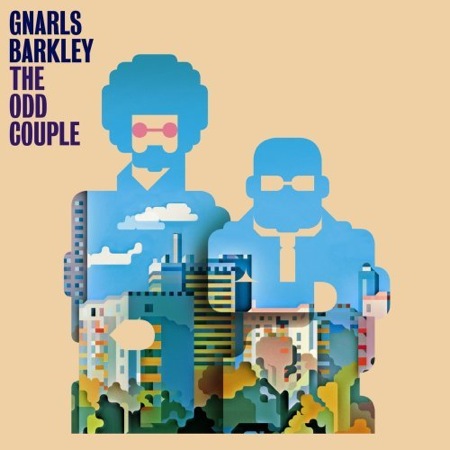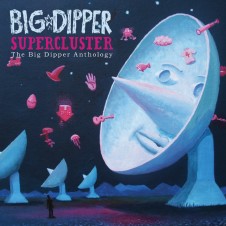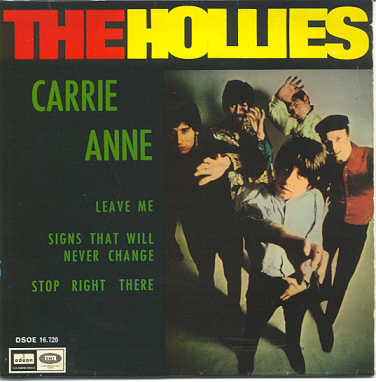How about we do some rock critic word association? This is only a test, but there are no right or wrong answers. Are you ready?
Continue reading »
What is it about Peter Gabriel that’s made him an untouchable among critics and rock nerds? Beside the “Sledgehammer” single/video, which rock nerds feel free to dismiss and mock, the guy seems to have been given a free ride despite having been one of the most over-the-top of tuneless prog-rockers and a long-time enabler of players of geeky instruments, like the Chapman Stick, headless guitars, and hi-tech synths that I can’t understand enough to fully describe and then mock.
For some understandable reasons, Peter Gabriel is thought of as having a higher degree of integrity and relevancy than his prog-rock contemporaries – and even moreso than most of his more readily embraced “Art Rock” contemporaries (I trust you understand these fine lines). In fact, Salon termed it “weirdly arty integrity.” Understandably, this shields him from the slings and arrows so freely directed at former bandmates and members of other prog ensembles. Along with the prog-transcendent Robert Fripp, he’s reached out to younger, non-prog artists for collaborations on his albums, such as Paul Weller, at the time still a member of the decidedly un-prog The Jam, and Kate Bush. He’s done the charity/world music scene as well as anyone, some cool soundtrack work, and other deeds befitting a musician of David Byrne‘s rock-crit stature, but even Byrne gets beat up now and then.
Here’s a sampling of some of the worst things I’ve seen critics say about Peter Gabriel:
Continue reading »


UPDATED: The tracks KingEd initially received for review were in the wrong order. His review has been reordered to reflect the proper sequencing. Some of his comments may now be out of context but, he assures us, “no less valid.”
You may click the title of this post to swing on over to a streaming version of this album courtesy of our friends at Phawker. Whether you listen along or not, I encourage you to let my real-time thoughts on this album sink deep into your being. There’s enough crap music made every year without the need for retro-crap of this magnitude.
“Blind Mary”: Here’s a “cute” number about stalking a blind girl named Mary. How sweet! This one has that digital approximation of the ’60s Ed Sullivan sound, which seems to be this band’s bread and butter when not doing the Night at the Roxbury party music. I’m really feeling nostalgic for that “Groove Is in the Heart” band, Lisa Stansfield, and other late-’80s/early-’90s British imports that delivered watered down versions of half-decent American dance-pop music. Damn, I know these two guys aren’t British, but they water down half-decent music with the best of any trendy Brits over the last 20 years. Bring back Fine Young Cannibals, pronto! At least those guys knew how to finish what they start. This is yet another song that just conks out after the initial ideas are introduced in the first 30 seconds.
“She Knows”: Now Gnarls dials up a Bacharach/David vibe! Chattering electronic beats threaten to come to the fore. There’s some kind of digital hiss all over the vocals. Why? Or is this a drum machine’s idea of playing the snare with brushes? More Ikea Music. Let’s make out.
“No Time Soon”: Is this a Harry Belafonte number? It’s kind of folky, but now it’s threatening to open up into a Fifth Dimension-style stoned soul picnic. Yes, that’s where we’re headed, load into the Way-Back Machine, digital style, meaning we’re slated to hear the same damn electric drum beats rather than the studio majesty of a Hal Blaine. This is Ikea Music, for practical living!
“Whatever”: What’s this, Gnarls Barkley’s take on garage rock? I can confidently say this one doesn’t suck, but here’s a little word of advice: garage rock works much better when there’s a fuzz guitar or overdriven Farfisa/Vox organ driving through the proceedings. Otherwise, why bother?
“Who’s Gonna Save My Soul”: All right, we’re getting into some mournful soul saving and coffee table soul! The singer just pronounced the “t” in often. Man, that’s a pet peeve of mine! “Who’s gonna save my soul, now? I wonder if I’m gonna grow old, now…” This, my friends, is SOUL music, or at least what we think it should be when we’re not really paying attention.
“Run (I’m a Natural Disaster)”: What the hell is this, Spencer Davis Group’s “I’m a Man” done Alvin and the Chipmunks style? Slow down, dudes. Like Col. Steve Austin once said, “She’s breaking up!” I’m curious to hear from people who dig hearing the constant chattering of electronic hi-hits, as featured in this song.
Continue reading »
Townsman General Slocum has sent along the following thoughts for contemplation and discussion.
Today I was at one of my favorite places to pick up meat and potatoes music from the era of my youth, if not music I actually knew back then, the local CVS. It is staggering to me that some of the things I have found there made it through whatever wasteland of needless production and acquisition industrial mechanisms, to be passed by or to get the blinking, blank stare of the Emmaus polyesterati. I have found some great early ’70 Rod Stewart (yes, relatively great – sit down and be nice), some country from the same era, and today’s paydirt: Three Dog Night‘s Seven Separate Fools and Rare Earth‘s Ma. Fine records, both. But especially the Rare Earth.
For the cover alone in the incongruously bland setting of a CVS, I thank them. The 17-minute title track is the least engaging, but good background grooves. The rest of the album is a lot of fun. You have to dag on one of the only white bands on a Motown label (an imprint, possibly called Rare Earth, actually, so no fear of fat-ass bass here) putting out a record written and produced by Norman Whitfield, the black, funk, spirit of the record. At least it seems so.
Lately I have been finding a lot of this era and broad genre in such places. Uriah Heep, Mott, Cactus (!), all manner of forgotten records turning up in the sub-basement of America’s most out-of-touch outlets for anything cultural. My question is, What have you found? Not in thrift stores, though feel free to share – I mean, the kind of find that just startles you to see it, and you maybe buy it just to reward the serendipity of the encounter. Gives you faith sometimes, in small doses.


As I await my copy to arrive, I thought I’d share the reminder that 2000 Man sent my way today: Big Dipper‘s box set, Supercluster, hit the streets earlier today! You can order it here if you don’t see it in your local store.
You may recall our interview with Big Dipper’s Gary Waleik a while back – before anyone else thought to cover the long-overdue digital issue of the band’s catalog, I might add (ever so humbly). If you didn’t see it when it first ran, check it out. You’ll also be able to sample a crackly, burn from my Big Dipper vinyl.
In a few weeks, Rock Town Hall travels to Hoboken, NJ to catch one of the band’s reunion shows!
As some of you know, I’ve long been troubled by the critical acclaim The Byrds have received over the years relative to some of their contemporaries, some of whom I like better than The Byrds and others who have the sole advantage of not having included the annoying modern-day Roger McGuinn. It’s petty and pointless of me to harp on these feelings, but are not petty and pointless harping among the reasons we enter the Halls of Rock?


The Hollies, “Carrie Ann”
The band I have felt has been most slighted by The Byrds’ inflated legacy is The Hollies. If I want to hear jangly guitars, lots of harmonies, and songs about wanting to hold hands with girls the singer is too shy to even say “Hello” to I want to hear The Hollies. The teenage-geek longing in their songs is moving, their beats are driving, and the abundance of harmonies never strikes me as saccharine. They don’t hit me with a bunch of second-hand hippie philosophy. Like The Easybeats, another one of my favorite second-tier ’60s bands, they were a pop band fully focused on the task of making pop records.
So, after years of harping on this issue, I’m just about ready to let it go. I’ve finally figured out why The Hollies never match the critical acclaim heaped upon The Byrds, that frequently lauded ’60s band I most often find least satisfying compared with the hype…

